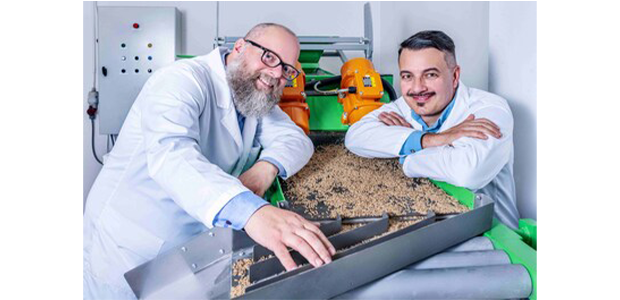
Proteine Resources secures €1.36M to accelerate insect revolution in CEE
Proteine Resources, a biotech company based in Poland, has secured €1.36 million in funding from SMOK Ventures and Bitspiration Booster VC, bringing its total raised to €1.8 million. Focused on revolutionising the animal nutrition sector, the company is pioneering the sustainable production of insect protein, aiming for €62 million in annual revenue by 2030.
The firm’s strength lies in its scalable technology and operational pilot line, with plans to construct its first factory in 2025, strategically located near feed sources for its insects. As global protein demand is set to rise by 60% by 2050, Proteine Resources is positioning itself to tackle the challenge of sustainable protein supply for both animal feed and, potentially, human consumption.
Bartłomiej Roszkowski, Co-CEO, highlighted the company’s dedication to achieving climate neutrality, aiming to significantly reduce greenhouse gas emissions. His co-founder, Konrad Włodarczyk, contributes 15 years of experience in autonomous production technology. Together, they have developed a process that produces insects containing nearly 70% protein, with 3-5 times more essential amino acids than comparable products, and unsaturated fatty acids. Their proprietary feeding system, using agri-food by-products, ensures a rapid four-week rearing cycle.
Another standout innovation from Proteine Resources is its patented multispectral analysis technology, which allows real-time monitoring of insect health and quality. This high level of automation supports large-scale insect breeding while maintaining consistent product quality. Insect protein, with its versatile applications, is set to disrupt the animal feed and pet food markets, offering an eco-friendly and highly nutritious alternative.
Investors have been attracted by the company’s scalability and its potential to meet increasing demand in an eco-conscious market. Proteine Resources plans to expand through a franchise model, setting up modular factories close to feed sources, managed by AI systems. By 2030, the company aims to have built a global network of autonomous breeding units.
The firm anticipates its first revenues by 2026 and has already secured pre-orders for its products, with 80% of its initial production capacity booked, leaving 20% for flexibility.
As it moves toward its ambitious goals, Proteine Resources is positioned to play a vital role in addressing both food security and environmental sustainability, with its innovations offering a glimpse into the future of sustainable protein production.

